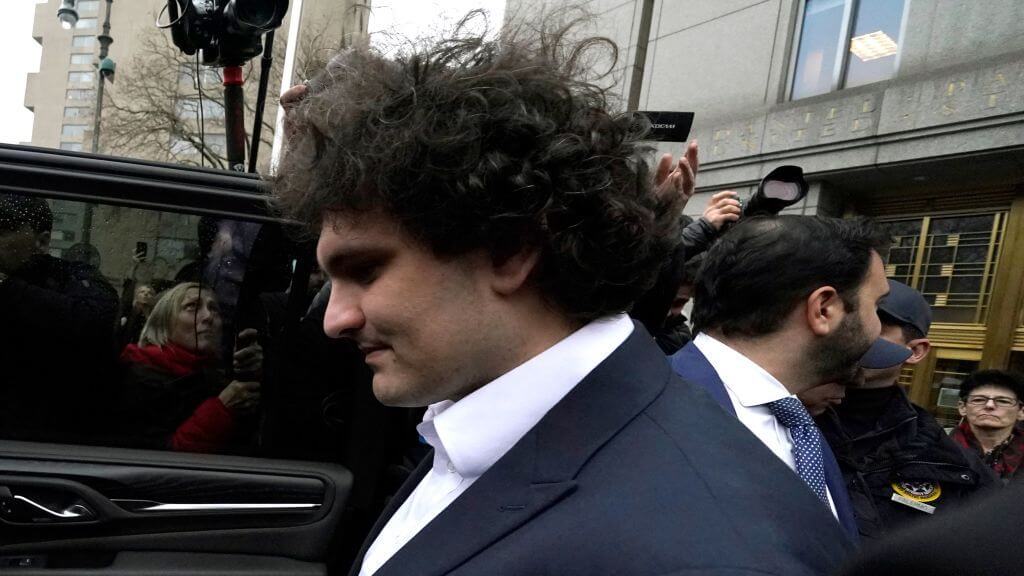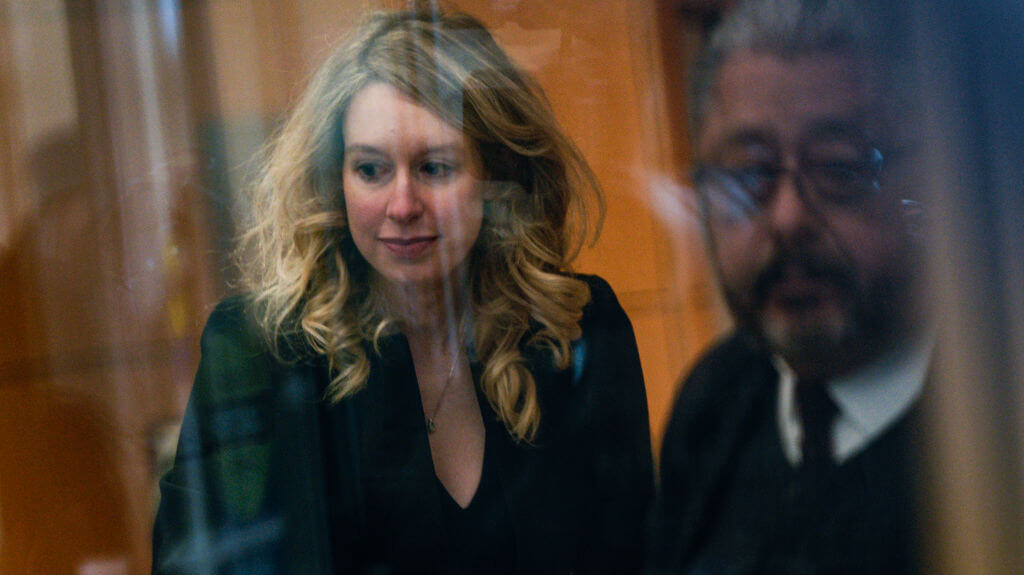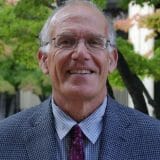Stanford was once one of the world’s great universities. It birthed Silicon Valley in its prime. And along with its nearby twin and rival, UC Berkeley, its brilliant researchers, and teachers helped fuel the mid-20th-century California miracle.
That was then. But like the descent of California, now something has gone terribly wrong with the university.
Students at Stanford Law School recently shouted down visiting Fifth Circuit Court of Appeals Judge Kyle Duncan. He had been invited to give a lecture by the school’s Federalist Society.
The judge never even got the chance. The law school students drowned him out. They flashed obscene placards. They screamed that he was “scum.” One yelled he hoped the judge’s own daughters would be raped.
Others bellowed, “You’re not welcome here, we hate you!” “Leave and never come back!” “We hate FedSoc [Federal Society] students, f–k them, they don’t belong here either!” and “We do not respect you and you have no right to speak here! This is our jurisdiction!”
When the judge tried to reply, they drowned him out with “liar” and “scumbag.” Then, mission accomplished, they smugly stomped out.
Note these were ostensibly not teenaged undergraduates. Instead, they were wannabe adult professionals, in law school to learn jurisprudence and to enter the elite American legal system that is supposed to have protocols separating it from the mobocracies prevailing abroad.
One of those foundational principles is to honor the Constitution’s protection of free speech and expression—not to mention the ancient idea of respecting an invited guest, or the custom to treat with deference a federal judge, to say nothing of the duty to honor the codes and laws of the institution that they have chosen to join which prohibit disruption of lectures and any effort to drive out public speakers.
When an exasperated Justice Duncan called out for a university administrator to restore calm, his podium was instead hijacked by Associate Dean for Diversity, Equity, and Inclusion Tirien Steinbach. She then gave her own preplanned, scripted lecture that sided with the disruptive protesters! Quis custodiet ipsos custodes?
The diversity dean then turned on the speaker. She asked the startled judge whether it was even worth supporting his free speech rights, given he and his views were deemed abhorrent to the new absolutist Stanford.
Note well: DEI Deans normally do not attend law school lectures. She showed up because she apparently knew in advance that the law students would violate their own university’s codes of conduct and disrupt a speaker.
So she had planned, again in advance, to do nothing to stop them. Instead, she would prepare a performance-art speech for such a certainty, to chastise the speaker and defend the disrupters. She assumed correctly that none of the other administrators, who also strangely attended, would admonish her or the students for violating the laws of their own university. She apparently assumed, once more rightly, that her own leftist fides on campus would be enhanced.
So far neither the diversity dean nor the students have been disciplined by the university. When the dean of the law school, Jenny Martinez, offered an apology (but did not punish the students), most of her own class walked out on her. And dozens of Stanford’s law school students lined the corridor in attempts to intimidate her as if she was some sort of toxic pariah.
In a Soviet-style finale, the Acting Associate Dean of Students Jeanne Merino advised the Federalist Society students who were targeted by fellow law students that there were “resources that you can use right now to support your safety and mental health.” Then Merino directed them, inter alia, to none other than Diversity, Equity, and Inclusion Dean Tirien Steinbach herself, the very dean who had taken over the podium to lecture Judge Duncan!
The debacle revealed four disturbing characteristics about the Stanford law students: One, they acted as if they were bullies and cowards. Videos of the mess showed how they turned mob-like in their chanting, flashing creepy placards, and, like Maoists, walking out on cue. Yet, when the judge fired back at their rudeness, like wounded fawns they took offense and pouted. And later, when there was mention that the names or photos of the protestors might be published, tit-for-tat, in the manner they themselves had put up posters of the Federalist Society members, they screamed that such exposure was unfair.
Two, they seem incompetent. To the degree there were any questions and answers, few knew how or even attempted to engage the judge on matters of the law and judicial theory. In other words, any grammar-school students could have matched their performance since it required no knowledge of the law, just an ability to chant and—in groupthink style—cry, scream, and mimic the majority.
Three, they were arrogant. One protestor blurted out that Justice Duncan probably could not have gotten into Stanford, as if their own puerile performance was proof of the school’s high standards of admission. That was obnoxious in addition to the fact that, as of recently, it may have become not so true. In July 2022, Stanford Law School announced that an uncharacteristic 14 percent of its graduates had flunked the California bar exam on their first attempt, a radical increase from past years. Four other California law schools—UC Berkeley, UCLA, UC Irvine, and USC—had a higher bar pass rate.
After watching the sad performance, one wonders who taught such rude and unimpressive people.
Ethics complaints were lodged last year against Stanford Law Professor Michele Dauber for tweeting a series of gross attacks on Camille Vasquez (“some Pick Me Girl lawyer”), the widely regarded attorney of Johnny Depp. Law professor Dauber also tweeted sick fantasies about Depp’s death—and imagined the actor’s corpse would “end up in a trash can eaten by rats.” Was she the sort of model that the law students had emulated?
Then there was Professor Pamela Karlan’s 2019 testimony before the House Judiciary Committee’s hearing on the impeachment of President Trump. Off-topic and gratuitously, Karlan weirdly attacked the name of the president’s youngest son, Barron Trump: “While the president can name his son Barron, he can’t make him a baron.” Was that the sort of puerility that the law students sought to embrace?
In 2021, a graduating Stanford law student sent the law school student body a bogus call to violence as if it was authored by the school’s small conservative Federalist Society. The fake call to arms read in part: “The Stanford Federalist Society presents: The Originalist Case for Inciting Insurrection . . . Riot information will be emailed the morning of the event . . . ” Was that the sort of smear that the law students learned?

Sam Bankman-Fried, the architect of the $26 billion FTX cryptocurrency meltdown that destroyed the livelihoods of thousands, is the son of two other Stanford Law School professors. Somehow they were involved in the Bankman-Fried family’s acquisition of a $16.4 million vacation home gifted to them from FTX shortly before it imploded.
According to the New York Times, both parent professors were intimately involved in their son’s multibillion-dollar business, either directly or through gifts to one parent’s political donor network:
He [Professor Bankman] and his wife, the Stanford Law professor Barbara Fried, were more than just supportive parents backing their child’s business. Mr. Bankman was a paid FTX employee who traveled frequently to the Bahamas, where the exchange was based. Ms. Fried did not work for the company, but her son was among the donors in a political advocacy network that she orchestrated.
Were these the ethical models that had influenced the law students?
Bankman-Fried is currently out on a $250 million bond and living under bond on the Stanford campus. He is out, in part, because two Stanfordites, former law school dean Larry Kramer and Andreas Paepcke, a Stanford senior research scientist, put up a $500,000 guarantee. Former Stanford student Caroline Ellison, a partner with Sam Bankman-Fried in his various financial collapses, has pled guilty to conspiracy to commit wire fraud, conspiracy to commit commodities fraud, conspiracy to commit securities fraud, and conspiracy to commit money laundering, and is now working with prosecutors.
Perhaps the law school should not be singled out since it simply reflects what appears to be symptomatic of a once-great university’s freefall.

A former Stanford student Elizabeth Holmes was recently sentenced to a long prison term for defrauding investors in connection with her company Theranos. She had fraudulently claimed to have invented a “revolutionary” miniaturized blood testing device. Many of her corporation’s oversight board members were drawn from the Stanford community.
The Wall Street Journal recently ridiculed a Stanford university group’s publication of a taboo vocabulary list (“Elimination of Harmful Language Initiative”). “Harmful” words supposedly unwelcome at Stanford included inflammatory expressions such as “American” and “immigrant.”
The Journal also noted that perhaps the cause of such Orwellianism was too many idle administrators chasing too few students: “For 16,937 students, Stanford lists 2,288 faculty and 15,750 administrative staff.”
More disturbing was the revelation of a “snitch list.” The harmful language initiative apparently is tangential to another new idea of rewarding Stanford snitches who feel offended by hurtful expression. Or, as the so-called “The Protected Identity Harm (PIH) Reporting” system put it, software will monitor campus speech and even offer “financial rewards for finding/reporting” any who supposedly violate approved language usage.
Was this the sort of campus experience that the parents of Stanford students pay for at about $90,000 per year?
Stanford was also plagued by a recent admissions scandal when a former head sailing coach accepted donations to his Stanford sailing program in exchange for trying to help two students’ admission applications.

Then there were campus attacks on a pair of eminent Stanford public health experts, Drs. Scott Atlas and Jay Bhattacharya. Both were pilloried mercilessly by some of the Stanford faculty and administration for daring to doubt the efficacy of what has proved to be disastrous government-enforced COVID quarantines and school shutdowns.
Yet the arguments of Atlas and Bhattacharya—the science does not support the mandatory use of masks to halt the pandemic, natural immunity was as efficacious as or superior to vaccine-induced immunity, the vaccinations would not offer lasting protection against either being infected or infecting someone else, and the quarantine lockdowns would cause more damage and death (familial abuse, suicides, substance abuse, mental depression, uneducated children, economic catastrophe, millions of missed surgeries, screenings, tests, and doctor’s appointments) than the virus itself—were all eventually substantiated.
Neither doctor received apologies from the administrators, faculty, or students who attacked them.
Currently Stanford’s long-serving president Marc Tessier-Lavigne—an accomplished neuroscientist—has been attacked serially by the Stanford Daily campus newspaper, which has called for his resignation. It alleges the president was culpable of scholarly misconduct concerning the publication of a joint research paper decades ago. The charges are not proven and remain under investigation. But they make it difficult for a president to weigh in on the above controversies when some faculty and the student newspaper are serially calling for him to step down for ethics violations.
In July 2020, a Stanford visiting neurology researcher, Chen Song, was arrested for not disclosing that she had apparently been an agent of China’s People’s Liberation Army. Stanford had also been investigated by the Department of Education for some $64 million in alleged Chinese-affiliated donations over a decade, all from previously unnamed, unidentified, and anonymous Chinese donors, most of them believed to be government associated.
The list of serial embarrassments reads like the suicides of Greek tragedy, where divine nemesis follows hubris. In this case, overweening intolerant ideology has sabotaged disinterested inquiry and meritocracy. Arrogance and sanctimoniousness lead Stanford to continue down this spiral—rather than pause, reflect, and redirect—and thereby only compound the public ridicule.
Stanford’s once-justified reputation for civility, transparency, tolerance, and professional ethics has been shredded before a global audience.
Given its hallowed history, and the university’s vital global role in cutting-edge research, medicine, and professional training, something has to change—before it is too late.
The university requires an array of compulsory workshops that faculty and many students must undergo. But given these recent debacles, perhaps two additional new training sessions are needed: required ethics instruction and a mandatory anger-management seminar.

